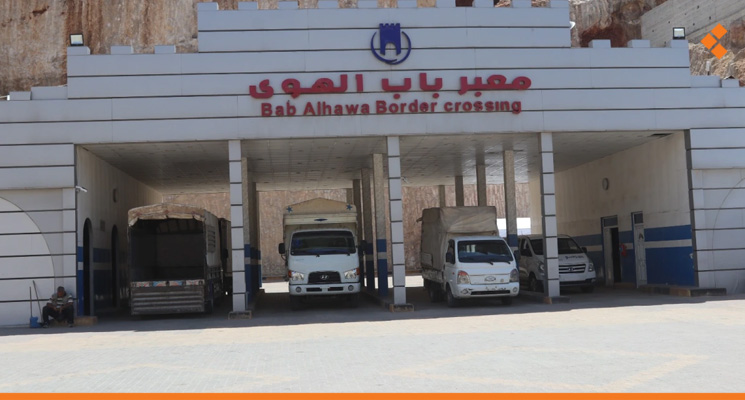Amidst criticism of the Syrian state regarding the conditions imposed on the delivery of humanitarian aid to northwestern Syria through the Bab al-Hawa border crossing, diplomatic sources familiar with the matter have refuted claims that Syria set any conditions for the aid delivery. They emphasized that Syria’s letter to the Security Council, granting permission to utilize the Bab al-Hawa crossing, does not include any conditions.
According to the sources, the UN Security Council convened a special session on Friday, to discuss Syria’s letter, which announced the granting of permission to use the Bab al-Hawa crossing for humanitarian aid delivery. This session was followed by closed consultations, held approximately one week after Russia employed its veto power against a Western draft resolution in the UN Security Council. The draft resolution aimed to facilitate aid delivery to specific areas in Syria without coordination with the Syrian state. The Syrian newspaper Al-Watan stated that such an approach would be a violation of Syria’s sovereignty.
Syria Today – Report Exposes Regime Targeting of Camps, Iraq Deports Refugees
Senior diplomatic sources have confirmed that the closed meeting was attended by representatives of Security Council member states, as well as Syria’s permanent representative to the United Nations, Bassam Sabbagh, the United Nations Undersecretary for Humanitarian Affairs, Martin Griffiths, and the Turkish representative, as reported by Al-Watan.
The sources highlighted that the purpose of the session was to discuss the letter sent by Syria on Friday to both the Secretary-General of the United Nations and the President of the Security Council. In the letter, Syria announced that the United Nations and its specialized agencies had granted permission to utilize the Bab al-Hawa crossing for humanitarian aid delivery to vulnerable civilians in northwestern Syria. The Syrian state pledged its full cooperation and coordination for a period of six months, commencing on July 13th.
The sources clarified that the meeting was convened at the request of Council members to receive a briefing on the Syrian message. During the meeting, Under-Secretary-General of the United Nations, Griffiths, provided his briefing, Member States shared their positions, and Syria presented its perspective. Syria expressed its immediate readiness to engage with the United Nations and the “OCHA-United Nations Office for the Coordination of Humanitarian Affairs” to discuss the implementation of the granted permission for aid delivery, without any conditions.
In a letter addressed to the Secretary-General of the United Nations and the President of the Security Council, Syria’s Permanent Representative to the United Nations, Bassam Sabbagh, emphasized the importance of the United Nations, its representatives, and crews refraining from engaging with armed groups and their associated administrative structures in northwestern Syria. He also urged the International Committee of the Red Cross and the Syrian Arab Red Crescent to supervise the facilitation and distribution of humanitarian aid in those areas.
AFP reported that the UN Office for the Coordination of Humanitarian Affairs (OCHA) submitted a document to the UN Security Council, suggesting that further examination and clarification are necessary regarding Damascus’ request for delivering aid in full cooperation and coordination with the Syrian government.
Free unions refuse to take over the Syrian regime the UN aid portal
In other news, the pro-opposition Baladi News reported that professional and scientific unions and free federations in Syria released a joint statement on Tuesday, expressing their firm opposition to the Syrian regime being the intermediary for UN aid.
The statement strongly emphasized that the Syrian people refuse to accept the Syrian regime as the channel for UN aid intended to assist millions of displaced Syrians.
Furthermore, the statement highlighted that providing assistance to those in need and affected in northwest Syria cannot be effectively achieved through the oppressive institutions of the regime.
This article was translated and edited by The Syrian Observer. The Syrian Observer has not verified the content of this story. Responsibility for the information and views set out in this article lies entirely with the author.


